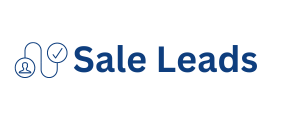The decline of cookies will have a direct impact on the advertising market. Cookies have been in a crisis situation for a few years now, weighed down by the increasing Kazakhstan Mobile Database privacy measures imposed by the different regulations that have been approved and that consumers themselves adopt. At the same time, cookies have faced a technically complex situation, as they do not work as well in mobile environments as they do on the desktop. As a coup de grace, Chrome announced a while ago – giving the market a margin to adapt to the new situation – that it will start blocking cookies by default. It is something that other browsers already do, but in the case of Google’s tool it is more worrying because it is the browser that has the largest market share.
All this has meant that the advertising market has had to face a crisis situation and that it has to think about how to reinvent itself. Over the last few months, many questions and many potential solutions have been discussed, although nothing is exactly clear and nothing completely prevents Brother Cell Phone List reliance on the measures and decisions taken by others. There has been talk of ID systems, new tools and recovery of systems from the past. On this last point, the one that dominates the conversations and the one that seems best positioned to become the alternative is contextual advertising.
The revival of contextual advertising is an element that has been repeated as a potential – and with numerous advantages – since people began to talk about how Google was going to lock cookies in Chrome. Contextual advertising was the one that dominated in the principles of the network, when ads were served based on the type of content that was being viewed. If you were reading an article about the best weekend getaways, for example, the banners would try to sell you flights, hotels and train tickets. Now, marketers see potential again because, improved to avoid making mistakes (like announcing airline tickets in a news story about an air disaster, something that happened), it could be the solution to their problems. Contextual advertising allows targeting by interests, but eliminates all the hassle of privacy and personal data.
For the media, it is also an element that they see with great potential and that they value, perhaps because it makes the importance of the quality of their articles more visible. For all this, for a few months there has been talk – and a lot – about contextual advertising. And, also, different studies have been launched that try to take the pulse of the market in this field. One of the latest is the one prepared by Digiday , which has asked brand and agency professionals about the future of post-cookies and contextual advertising as a solution to the problems.
Overall, just over half of those surveyed said they expect to spend more money on contextual advertising in the foreseeable future. The percentage is higher when brand and agency data is separated among the latter. Agencies are the ones who expect a greater investment in contextual advertising. Of course, this is not the only thing that the market will do to find its place and its way of connecting with the public in a cookie-free digital advertising. Respondents also acknowledge that they are investing more in technology to collect more first-party data and that more ad tech solutions are being used to find alternatives to cookies. Even so, these two points carry less weight than betting on contextual advertising in future plans.

